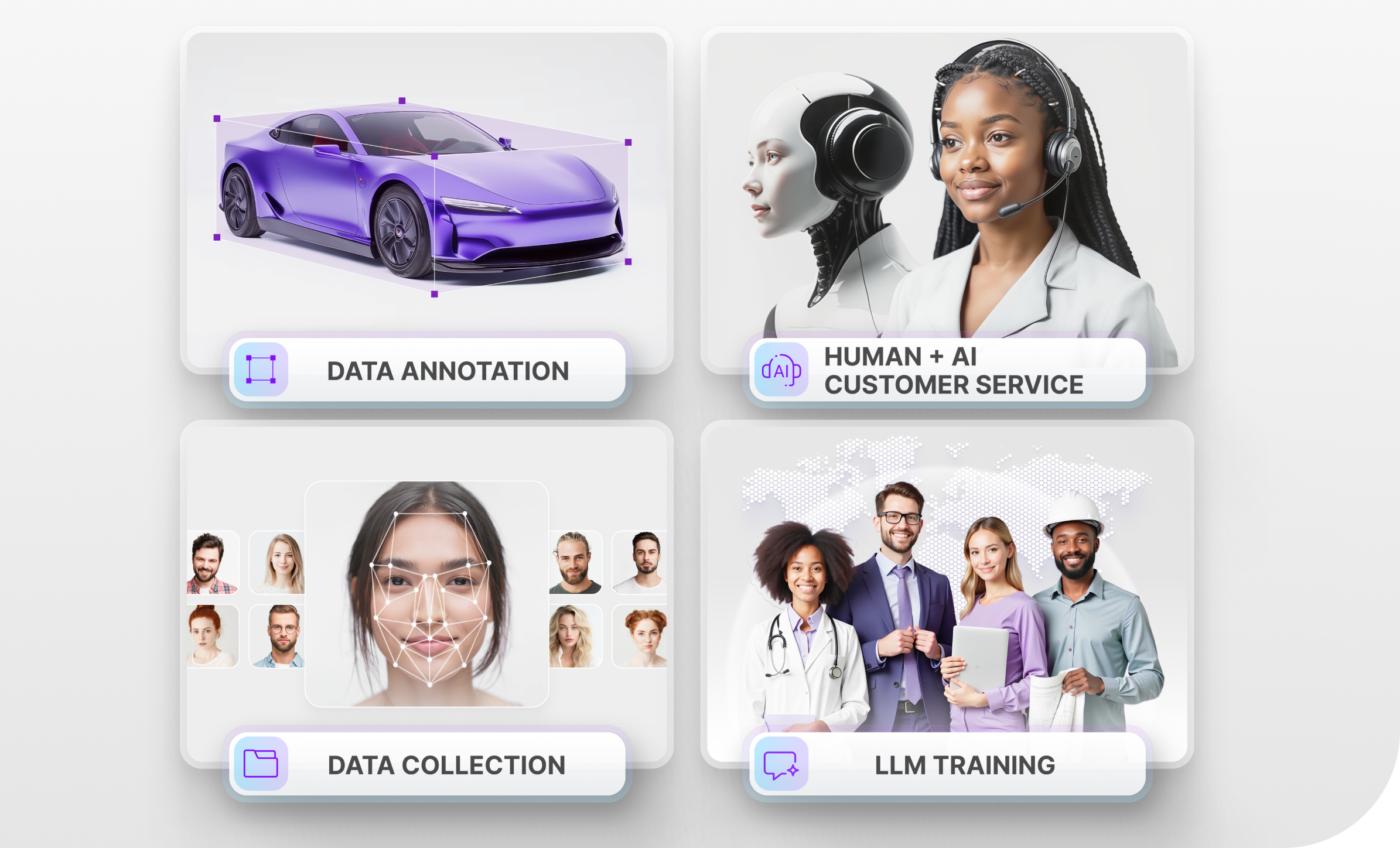The Impact of Customer Support Outsourcing on Global Business
Customer support isn’t just a function—it’s the frontline of a brand’s reputation. As businesses scale, so do customer expectations, creating a demand for fast, seamless, and culturally attuned support. That’s where outsourcing steps in—not as a budget hack, but as a strategic powerhouse.
Picture a startup in New York resolving customer issues overnight with a support team in Manila. Or a European e-commerce giant delivering 24/7 assistance with specialists spanning three continents. This isn’t just efficiency—it’s a competitive edge.
Outsourcing enables businesses to scale instantly, access specialized talent, and provide multilingual, round-the-clock support without missing a beat. More than just answering tickets, it’s about creating global customer experiences that feel local. Let’s break down how outsourcing isn’t just changing support—it’s transforming business itself.
The Rise of Customer Support Outsourcing
The customer support landscape is undergoing a seismic shift as businesses increasingly embrace outsourcing to meet global demands. This strategic revolution is reshaping how companies interact with their clientele worldwide, with adoption rates soaring across industries.
Key factors driving this surge include:
- Global talent access: Tapping into diverse skill pools across time zones
- Scalability on demand: Flexing support capacity to match business fluctuations
- Tech-driven efficiency: Leveraging AI and automation for superior service
- Multilingual prowess: Breaking language barriers to serve international markets
- Cost optimization: Balancing quality and affordability in customer interactions
- Focus on core competencies: Freeing internal resources for strategic initiatives
As businesses navigate an increasingly competitive landscape, outsourcing customer support has evolved from a tactical decision to a cornerstone of global success strategies. This model signifies a fundamental shift in viewing customer engagement as a catalyst for growth and innovation rather than a cost center.

Benefits of Outsourcing Customer Support
Outsourcing customer support to European countries offers US businesses a wealth of advantages. Cost-effectiveness tops the list, allowing companies to optimize budgets while maintaining high-quality service. Access to multilingual talent is a game-changer, enabling businesses to cater to diverse global markets with native-level language proficiency. The 24/7 coverage facilitated by time zone differences ensures round-the-clock customer care, crucial in today’s always-on digital landscape.
Beyond these metrics, outsourcing fosters innovation by exposing businesses to diverse problem-solving approaches. It allows companies to focus on core competencies while leveraging specialized expertise in customer engagement. The strategic advantage of tapping into Europe’s rich talent pool cannot be overstated, positioning US businesses for unprecedented global growth and customer satisfaction. Moreover, outsourcing can lead to improved customer retention rates, with studies showing up to 20% increase in customer loyalty for businesses leveraging expert outsourced support.
Challenges and Considerations
While outsourcing customer support offers numerous advantages, it’s not without its challenges. Cultural nuances can create communication gaps, potentially leading to misunderstandings. Quality control becomes more complex when teams are geographically dispersed. However, these hurdles are far from insurmountable.
To bridge cultural divides, invest in comprehensive cross-cultural training programs. Implement robust quality assurance protocols, leveraging AI-powered analytics to monitor interactions consistently. Regular video conferences and immersive virtual team-building exercises can foster stronger connections across borders.
Data security remains a top concern, especially with stringent regulations like GDPR. Combat this by partnering with providers boasting top-tier cybersecurity credentials and conducting regular audits. Additionally, establish clear data handling protocols and ensure all outsourced teams are well-versed in compliance requirements.
Navigating outsourcing complexities is like conducting a global orchestra. Success lies in harmonizing diverse talents while maintaining a consistent rhythm of excellence.
By proactively addressing these challenges, businesses can unlock the full potential of customer support outsourcing, turning potential pitfalls into stepping stones for global success. This strategic approach not only mitigates risks but also fosters innovation and cultural exchange, enriching the overall customer experience.
Selecting the Right Outsourcing Partner
Selecting the right outsourcing partner is crucial for leveraging the full potential of customer support outsourcing. A strategic approach involves evaluating potential partners based on their expertise, technological capabilities, and cultural alignment. Start by assessing their industry knowledge and track record in handling similar clients. Scrutinize their technology infrastructure, ensuring they offer cutting-edge tools for seamless integration with your existing systems.
Cultural alignment is paramount; look for partners who understand your brand voice and can effectively represent your company across diverse markets. Consider their language proficiency, especially if you’re targeting multilingual support. Evaluate their scalability to ensure they can grow with your business needs. Transparency in communication and pricing models is essential for building a lasting partnership.
Conduct thorough due diligence on data security practices and compliance standards. Request case studies and client references to gauge their performance. Consider a trial period to test compatibility before committing to a long-term partnership. This systematic approach ensures you find a partner who not only meets your current needs but also aligns with your long-term business objectives. Remember, the right partner can significantly enhance your customer experience and operational efficiency, while a mismatch can lead to costly setbacks. Take the time to vet potential partners thoroughly, as this decision can profoundly impact your business’s global success and customer satisfaction levels.
Impact on Customer Experience
Outsourcing customer support can dramatically reshape the customer experience, presenting both opportunities and challenges. When executed strategically, it can lead to enhanced satisfaction through 24/7 availability and multilingual support. However, if not managed carefully, it may risk diluting brand consistency or cultural understanding.
The impact on customer experience hinges on the outsourcing partner’s ability to align with the company’s values and customer-centric philosophy. Successful implementation can lead to improved first-contact resolution rates and higher customer loyalty, while potential pitfalls include communication gaps and loss of direct customer insights. Ultimately, the key lies in viewing outsourcing as a strategic partnership rather than a mere cost-cutting measure, focusing on long-term value creation and customer satisfaction.

Technology Integration in Outsourced Support
In the realm of outsourced customer support, technology integration has become a game-changer. AI-powered chatbots and virtual assistants now handle routine inquiries, freeing human agents to tackle complex issues. This synergy between artificial and human intelligence has revolutionized response times and service quality. Cutting-edge analytics tools provide real-time insights, enabling support teams to anticipate customer needs and personalize interactions.
The seamless integration of in-house and outsourced systems is paramount. Cloud-based platforms facilitate smooth data exchange, ensuring consistency across touchpoints. Advanced CRM systems synchronize customer information, enabling outsourced teams to access comprehensive histories and deliver contextualized support. Omnichannel integration allows for fluid transitions between communication channels, maintaining conversation continuity whether a customer switches from chat to phone or email.
Automation streamlines workflow management, optimizing ticket routing and prioritization. Machine learning algorithms continuously refine these processes, enhancing efficiency over time. Voice recognition technology and natural language processing have elevated phone support, enabling more natural, intuitive interactions. As technology evolves, the line between in-house and outsourced support blurs, creating a unified, seamless customer experience that knows no borders. The integration of these advanced technologies not only improves operational efficiency but also significantly enhances customer satisfaction, leading to increased loyalty and positive brand perception in the global marketplace.
Case Studies: Successful Outsourcing Stories
TechInnovate, a rapidly growing US-based SaaS startup, faced challenges scaling their customer support to match their global expansion. By partnering with a specialized European outsourcing firm, they achieved remarkable results. Within six months, TechInnovate reported a 40% reduction in response times and a 25% increase in customer satisfaction scores. The multilingual support team effectively handled inquiries from 12 different countries, leading to a 30% boost in international sales.
Similarly, GreenGrowth, an eco-friendly e-commerce platform, leveraged Eastern European talent to provide 24/7 support. This move resulted in a 50% decrease in customer churn and a 35% improvement in first-contact resolution rates. The outsourced team’s cultural insights proved invaluable in tailoring communication styles to diverse markets.
DataDrive, a data analytics firm, outsourced their technical support to a team in Portugal. The results were transformative: a 60% reduction in ticket backlog and a 45% increase in customer retention rates. The European team’s expertise in data privacy regulations also enhanced compliance efforts.
Outsourcing our customer support to Europe was a game-changer. We gained not just efficiency, but a partner in innovation and cultural understanding. It’s like having a global team without the overhead, allowing us to focus on core product development while ensuring our customers receive top-notch support across time zones.
This sentiment from Sarah Chen, CEO of TechInnovate, echoes the experiences of many US businesses. These case studies highlight that successful outsourcing goes beyond cost-cutting, offering strategic advantages in global market penetration, service quality, and operational flexibility. By leveraging diverse talent pools and cultural insights, companies can create a more robust, responsive customer support infrastructure that scales with their global ambitions.
Future Trends in Customer Support Outsourcing
The future of customer support outsourcing is poised for revolutionary changes, driven by technological advancements and evolving consumer expectations. AI-powered support systems are set to become more sophisticated, offering human-like interactions and predictive problem-solving capabilities. Hyper-personalization will reach new heights, with support agents leveraging real-time data analytics to tailor responses to individual customer profiles and histories.
As customer expectations evolve, we’ll see a shift towards proactive support models, where issues are anticipated and resolved before they arise. The line between human and AI support will blur, creating a symbiotic ecosystem that combines the best of both worlds. This transformative landscape will redefine the global impact of customer support outsourcing, fostering unprecedented levels of efficiency and customer satisfaction. The integration of these advanced technologies will not only streamline operations but also create new opportunities for personalized and immersive customer experiences.
FAQs About Customer Support Outsourcing
How does customer support outsourcing impact business costs?
Customer support outsourcing transforms fixed costs into variable expenses, eliminating extensive in-house infrastructure. Companies can scale support flexibly, paying only for services used. This model often leads to substantial savings, with some businesses reporting up to 50% cost reduction while maintaining or improving service quality.
What are the key benefits of outsourcing customer support to European countries?
Outsourcing customer support to European countries offers US businesses multilingual expertise and cultural affinity. European talent pools provide high-quality professionals fluent in multiple languages, enabling seamless communication with diverse markets. The overlap in working hours facilitates real-time collaboration and faster issue resolution, enhancing customer satisfaction and operational efficiency.
How can US businesses ensure quality control in outsourced customer support?
US businesses can ensure quality control in outsourced support through rigorous metrics, regular audits, and AI-powered monitoring. Clear communication, comprehensive training, and continuous improvement are crucial. Feedback loops and satisfaction surveys help identify enhancement areas, maintaining consistent service quality across global teams.
What technologies are essential for effective customer support outsourcing?
Effective customer support outsourcing leverages cutting-edge technologies. Cloud-based CRM systems enable seamless data sharing and insights. AI-powered chatbots handle routine inquiries, while analytics tools provide real-time metrics. Secure platforms ensure data privacy, and omnichannel integration creates a unified customer experience across all touchpoints.
How does outsourcing affect customer satisfaction and loyalty?
Strategic outsourcing can enhance customer satisfaction and loyalty through 24/7 multilingual support, improving response times and resolution rates. Cultural insights from diverse teams enable personalized interactions. While maintaining brand consistency is crucial, effective outsourcing can boost customer retention, fostering long-term loyalty through improved service quality.





